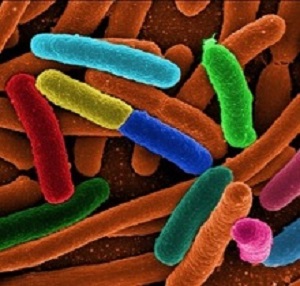 Canadian researchers at the have invented a fast, affordable way for developing communities to test their drinking water for potentially deadly E. coli. Unlike current tests that cost about $70 and can take up to three days to get back from the lab, the invention uses paper strips similar to those in litmus tests to produce results in less than three hours at a cost of 50c.
Canadian researchers at the have invented a fast, affordable way for developing communities to test their drinking water for potentially deadly E. coli. Unlike current tests that cost about $70 and can take up to three days to get back from the lab, the invention uses paper strips similar to those in litmus tests to produce results in less than three hours at a cost of 50c.
"This has the potential to allow routine, affordable water testing to help billions of people in the developing world avoid getting sick," said Sushanta Mitra, executive director of the Waterloo Institute for Nanotechnology. at the University of Waterloo. "It is a breakthrough." Now being refined by Glacierclean Technologies, a startup company co-founded by Mitra, the test could also improve water safety in remote or rural areas of the developed world and greatly reduce testing costs for municipal treatment systems.
Researchers targeted E. coli – the culprit in a deadly outbreak in Walkerton, Ontario in 2000 – because it is an indicator organism of water contamination.
The bottom of the paper strip developed by Mitra and his colleagues is laced with sugar, which begins to dissolve when placed in water. E. coli bacteria are attracted by the resulting sugar trail and get trapped in the porous paper when they come in contact with it.
As water enters the paper, it carries the trapped bacteria into an area of the strip containing a mixture of chemicals. The E. coli react with those chemicals and turn the strip pinkish red to signify a positive test.
With high levels of contamination, a result is produced in just 30 minutes. Low levels of contamination take up to 180 minutes. Work is underway to reduce test times.
Glacierclean, which already sells mobile water kits to detect E. coli for about $5 a test, hopes to have its DipTest strips on the market within nine months.
"Simple ideas create paradigm shifts in technology and this is a simple, frugal innovation," said Mitra, also a mechanical and mechatronics engineering professor at Waterloo.
Abstract
We have developed a new litmus paper test (DipTest) for detecting Escherichia coli (E. coli) in water samples by performing enzymatic reactions directly on the porous paper substrate. The paper strip consists of a long narrow piece of cellulose blotting paper coated with chemoattractant (at bottom edge), wax hydrophobic barrier (at the top edge), and custom formulated chemical reagents (at reaction zone immediately below the wax hydrophobic barrier). When the paper strip is dipped in water, E. coli in the water sample is attracted toward the paper strip due to a chemotaxic mechanism followed by the ascent along the paper strip toward the reaction zone due to a capillary wicking mechanism, and finally the capillary motion is arrested at the top edge of the paper strip by the hydrophobic barrier. The E. coli concentrated at the reaction zone of the paper strip will react with custom formulated chemical reagents to produce a pinkish-red color. Such a color change on the paper strip when dipped into water samples indicates the presence of E. coli contamination in potable water. The performance of the DipTest device has been checked with different known concentrations of E. coli contaminated water samples using different dip and wait times. The DipTest device has also been tested with different interfering bacteria and chemical contaminants. It has been observed that the different interfering contaminants do not have any impact on the DipTest, and it can become a potential solution for screening water samples for E. coli contamination at the point of source.
Authors
Naga Siva Kumar Gunda, Saumyadeb Dasgupta, Sushanta K Mitra
[link url="https://uwaterloo.ca/news/news/researchers-develop-cheaper-faster-test-e-coli-drinking"]University of Waterloo material[/link]
[link url="http://journals.plos.org/plosone/article?id=10.1371/journal.pone.0183234"]PLOS One abstract[/link]
